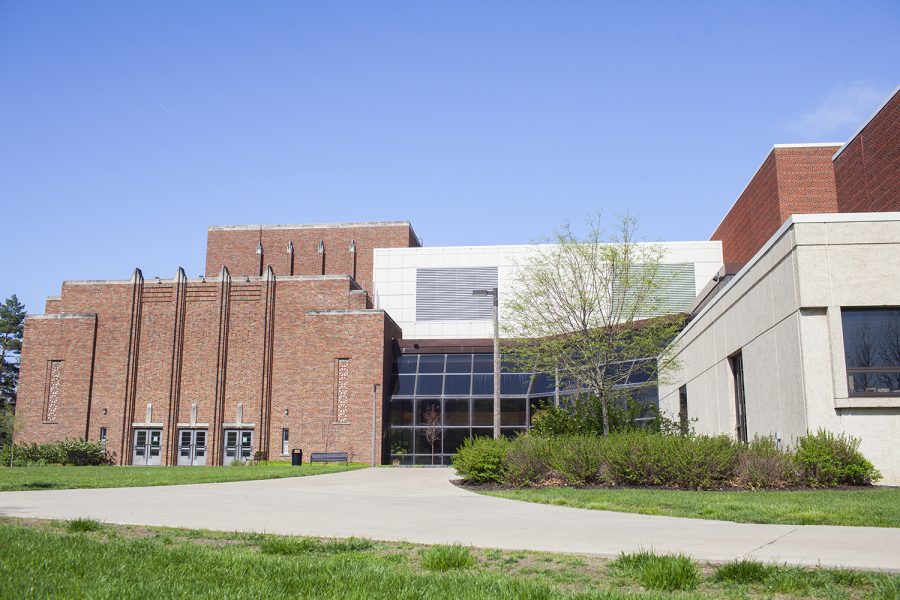UI Theatre Arts Department first mainstage production provides perspectives on social justice
The series of short plays, titled 6 by 6: Collected Perspectives on Social Justice, is part of the department’s goal to reimagine its centennial season to elevate diverse voices and create a space for dialogue about race.
The University of Iowa Theater Building is seen on Monday, May 6, 2019.
October 6, 2020
The University of Iowa Department of Theatre Arts’ first mainstage of the centennial season may have a small cast, but intends to deliver some big ideas.
6 by 6: Collected Perspectives on Social Justice is a series of 10-minute plays with no more than three cast members written by Black UI alumni. The playwrights were commissioned by the department to showcase their points of view on social justice topics of their choosing.
In addition to being the first mainstage performance of the year, 6 by 6 is also part of Art and the Pursuit of Social Justice, a series that explores timely social issues and aims to open up a dialogue about them.
The majority of rehearsals took place online because of COVID-19. While they learned blocking, the small casts met in-person for masked and socially distanced rehearsals shortly before filming the final product, which will become available to stream on the Theatre Arts department’s YouTube channel from Oct. 10 at 8 p.m. through Dec. 15.
Britny Horton, director of Princeton Junction, written by playwright Kim Euell, said virtual formatting rehearsals presented the opportunity to focus solely on the script before in-person rehearsals began.
“It gave us a lot more time to delve into the script and the important topics that this show brings up,” Horton said. “That way when we were in person, we were able to use that time a lot more effectively. I think it was a beautiful marriage between virtual and in person rehearsals.”
Euell said she’s had an ongoing dialogue with Horton during the production process, which she said is very rewarding. Euell said she learned from these conversations that Horton has commuted on the Princeton Junction line in New Jersey, where the play takes place.
Princeton Junction examines perspectives on race and politics through the lens of three strangers on a commuter train.
“I think, in a way, the play is kind of a collage of lived experiences and overheard conversations,” Euell said.
RELATED: Online performances increases accessibility, pose new challenges for fine arts
Horton added that experiencing this play virtually is beneficial, because of the difficulty of its subject matter.
“Although I’m African American, I don’t want to act like this is something easy,” Horton said. “It’s hard to have these conversations. If it was easy, we’d have them all the time … With it being at home, people can digest it and hopefully have healthy conversations about it.”
Playwright Micah Ariel James said she also hopes her play, The Honey War, can help the audience digest heavy topics.
Writing the play was her way of processing the traumatic events of 2020, James said.
“I think what theater does best is invite people into shared spaces – in this case virtual – to sit with issues and sit with others to process things,” James said. “To me, theatre is for processing things and exploring big questions, and not necessarily coming away with answers. But if people have listened and watched and walk away considering new things, I think that’s a successful piece of theater.”
Keith Josef Adkins, writer of A Refugee in Detroit, also explores contemporary issues in his play, which centers on Syrian refugees adapting to life in the U.S.
“I’m always interested in marginalized people in this systemic structure we all navigate,” Adkins said. “I want to have conversations with each other and learn about each other and to unpack the way we’re often pitted against each other for economic reasons and economic opportunities.”
Generational wealth is a theme Adkins often includes in his work. He said it’s a topic that he feels isn’t talked about often enough, considering how essential it is to communities of color.
The plays will be viewable from Oct 10 through Dec 15.





